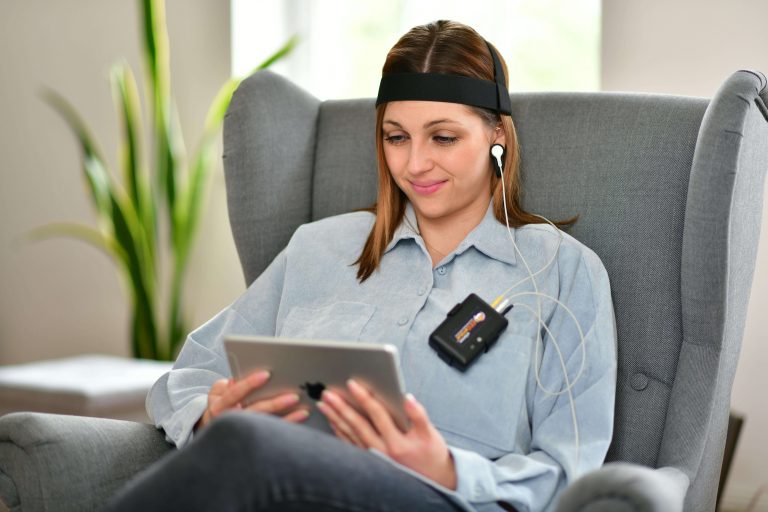Neurofeedback for ADHD: How It Can Help
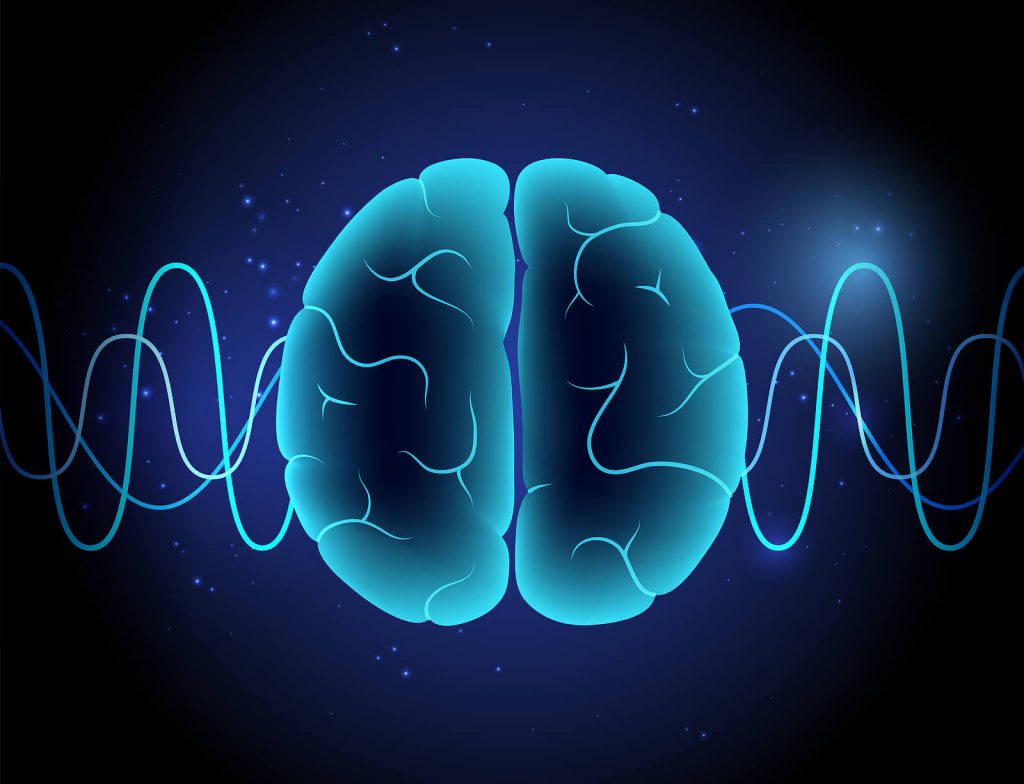
If you or someone you love has ADHD, you may already be familiar with the common treatments such as medication, exercise, practicing time management, and other lifestyle changes. But, did you know that Neurofeedback can also help improve inattention, reduce impulsivity, and has been shown to improve performance in work and academics?
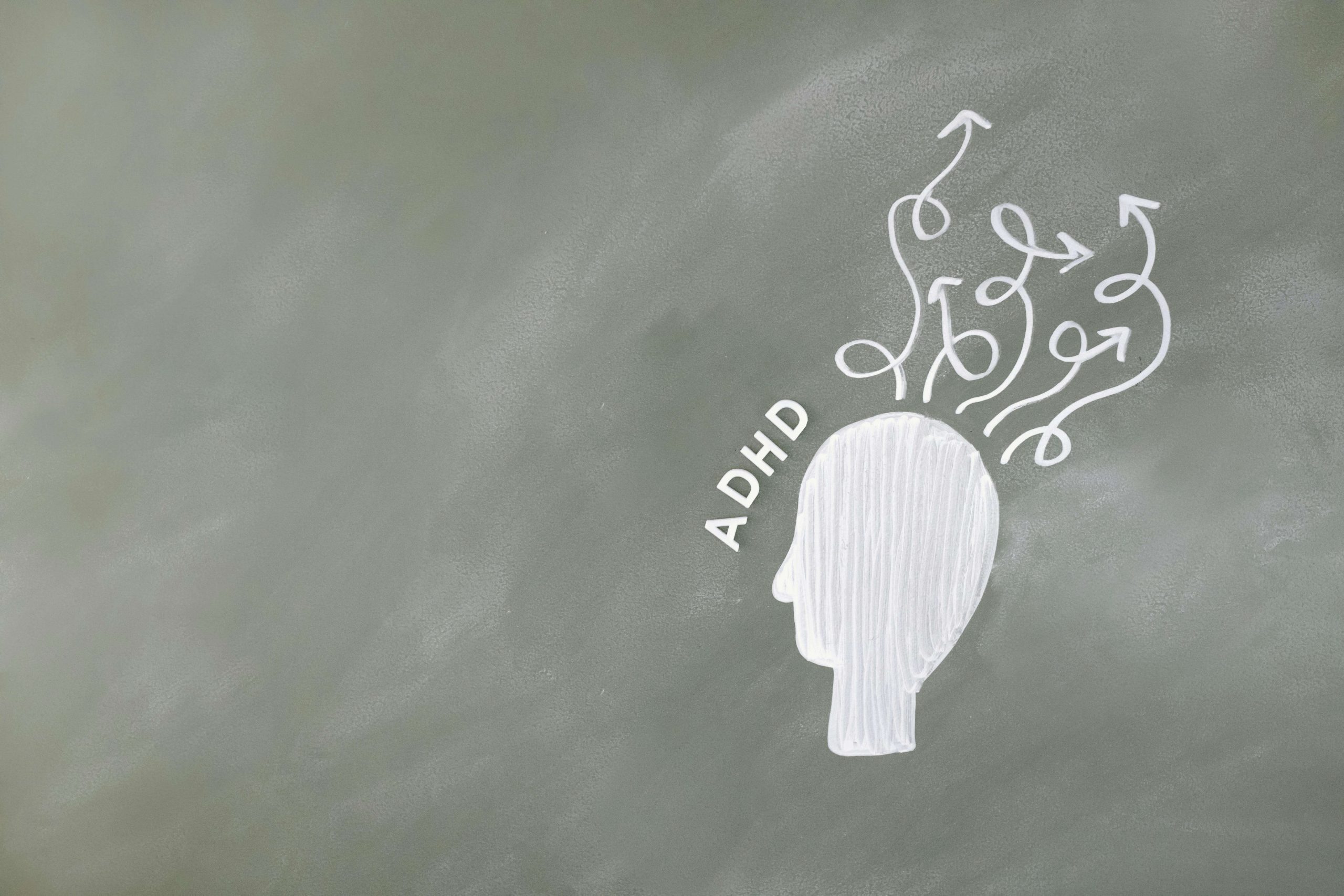
Other symptoms include:
- Difficulty staying on task
- Sometimes not seeming to listen when spoken to directly
- Having trouble staying organized for tasks and activities
- Often losing necessary materials for tasks or activities
- Feeling reluctant to engage in tasks that are mentally challenging
- Often not following through on instructions given
ADHD can only be diagnosed by a professional, so if you think you might have ADHD and are interested in exploring an official diagnosis, please reach out.
What Does ADHD Have to Do With Neurofeedback?
Neurofeedback is a form of biofeedback, which is a therapeutic technique that utilizes technology to track psychological processes. Biofeedback provides feedback in real time on things such as heart rate, muscle waves, and skin temperature. Neurofeedback provides feedback on brain activity. It monitors brain waves and uses the data gathered to help people understand how to improve their brain function. Not only is it used to help treat ADHD, but there is research supporting its benefit for those with traumatic brain injuries, chronic pain, anxiety and anxiety disorders, depression, trauma, and insomnia, amongst others.
Prior to beginning neurofeedback training, you must first get a brain map.
To do this, we collect the electroactivity from 19 different locations in the brain so we can get a picture of what’s going on and therefore individualize the specific training for each person’s brain. Once we know what training will work best for you, we can begin neurofeedback.
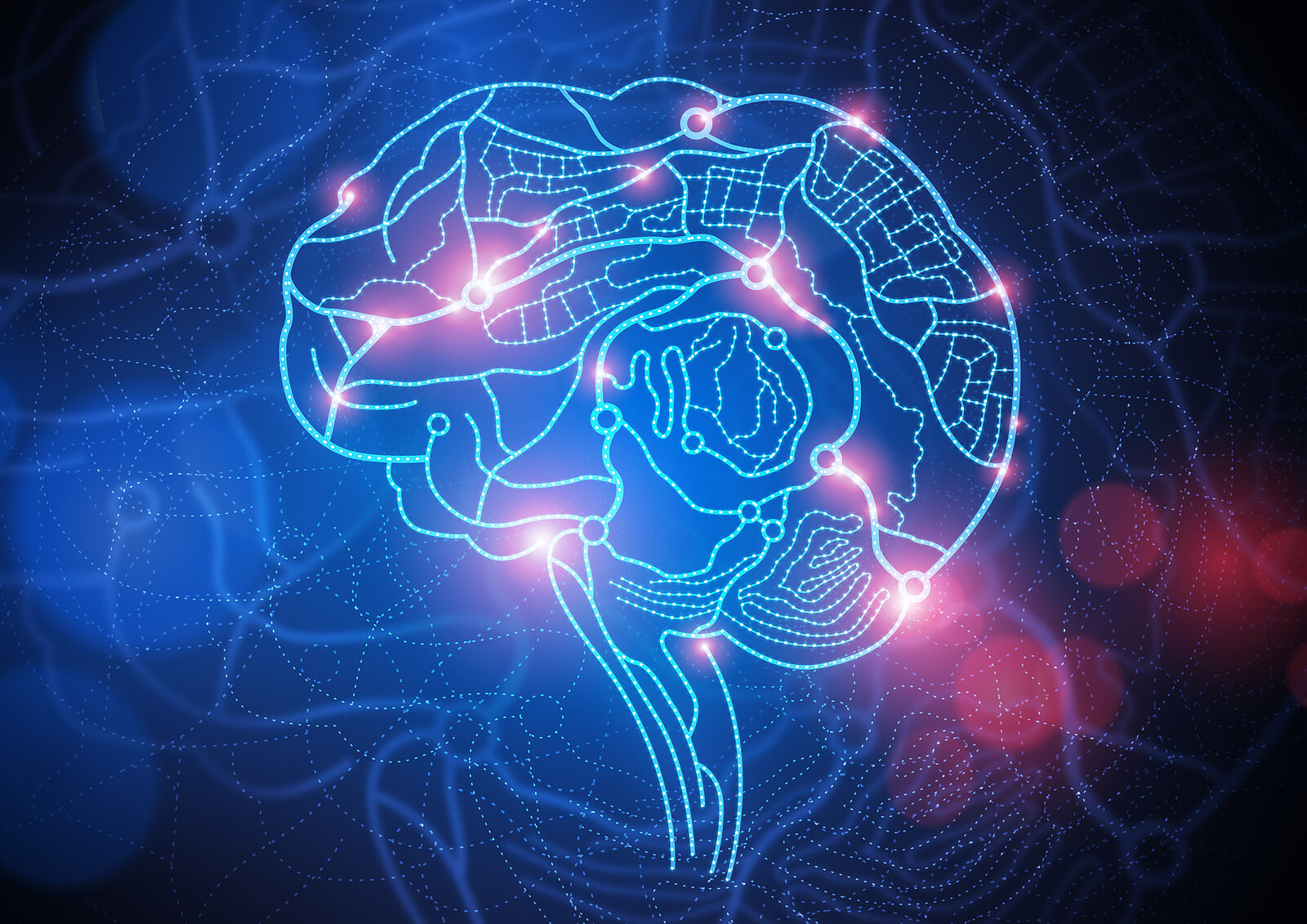
At Mountain Vista Psychology, each appointment lasts 45 minutes with sessions two times a week. Most people finish with 30 to 40 sessions; however, the number of sessions needed varies from person to person. Most people with ADHD use the neurofeedback process to support the brain to increase beta waves, which occur when a person is alert and engaged, and decrease theta waves, which occur when the brain is daydreaming or relaxed.
With repeated practice, the use of neurofeedback can teach the brain to associate brainwave patterns with positive results, which can therefore improve overall symptoms. To put it simply, neurofeedback rewards your brain for managing symptoms. Over time, this trains your brain to regulate itself.
If Neurofeedback Is Beneficial for So Many Different Conditions, How Does Neurofeedback Particularly Help ADHD?
As previously stated, people with ADHD struggle with impulsivity and hyperactivity. Neurofeedback specifically targets the brainwaves that cause the symptoms and teaches the person how to modify the brainwave activity so they are better able to focus and regulate their activity level. The brain has an amazing ability to learn and will improve in regulating executive functions. Because of this, neurofeedback has been shown to improve focus, forgetfulness, impulse control, careless mistakes, attention to instructions and conversation, organization, and more. However, neurofeedback is not a cure-all for ADHD.
There are both benefits and limitations to neurofeedback.
It can be helpful for those who are hesitant to use medication or don’t respond well to medication, and in a similar vein, it has been shown to be effective for those who don’t respond well to other treatments. Additionally, it can improve both the ability to emotionally regulate and it can boost cognitive function. Finally, neurofeedback is long-lasting, and once someone completes neurofeedback, they rarely need to come back for booster sessions. Just like reading or riding a bike, once our brains learn something, they don’t tend to retain the learning.
Although there are many pros to doing neurofeedback, there are some cons. For example, neurofeedback has to be administered by a trained professional, which can make it less accessible to those who either don’t have the time or can’t afford to visit a professional environment frequently. Because of this, cost can also be a limitation. Lastly, like other treatments for ADHD, the effectiveness of neurofeedback varies for the individual receiving it. The benefits and intensity of improvement depend on how you respond to the treatment. However, for many, the pros outweigh the cons when seeking intervention.
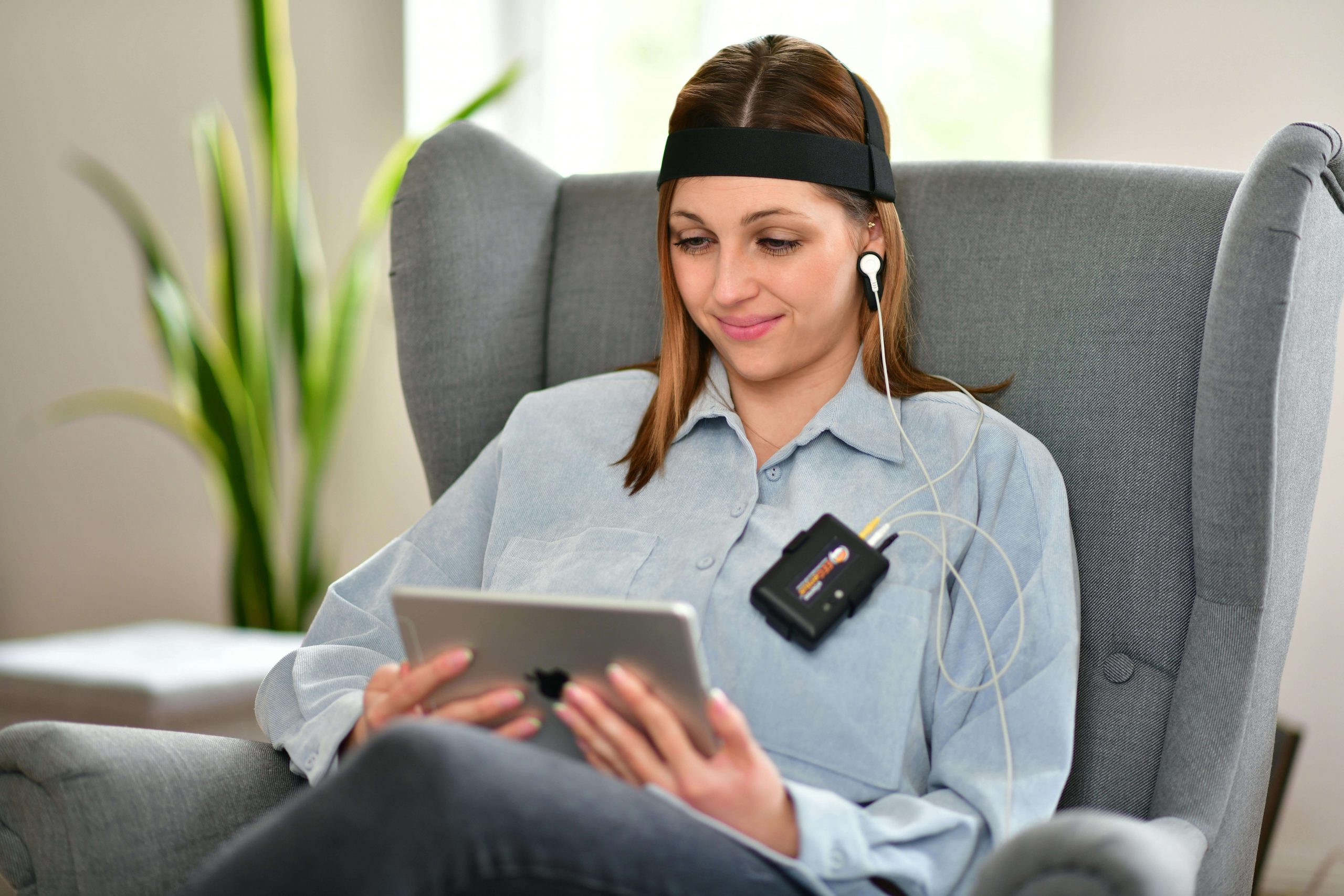
Start Neurofeedback Therapy in Denver, CO, Littleton, Englewood, Greenwood Village, and Across the State
Here at Mountain Vista Psychology, we offer neurofeedback services! We have many providers who are trained and experienced in administering neurofeedback. For those who are worried about cost and affordability, we have providers who are in network with Medicaid and Cigna, both of which cover neurofeedback services (unfortunately, most other insurance companies will not yet pay for neurofeedback). We have been providing neurofeedback to the Denver metro area for 13 years and counting, and are proud of the progress and improvement we have seen it make in our clients’ lives! Please feel free to reach out to us if you think neurofeedback is a good fit for you! You can start your therapy journey by following these simple steps:
- Contact us, call 720-583-9332 or email info@mountainvistapsychology.com
- Meet with a trained therapist
- Start getting the support you deserve!
Other Services Offered with Mountain Vista Psychology
At Mountain Vista Psychology, we provide many services to help empower individuals on their journey toward mental and emotional well-being. So, in addition to offering neurofeedback therapy, we also provide counseling services for trauma recovery, child counseling, teen counseling, adult counseling, family counseling, & more. We also provide EMDR, and EFT therapy services for Neurofeedback for ADHD, Neurofeedback for Autism, Neurofeedback for Concussion/ TBI, and Neurofeedback for Sports/Performance. Our team also provides testing for learning disabilities, ADHD, and Autism. Be sure to check out our Blog and FAQs for more about us and our services!
Call For a FREE Consultation
We serve the Denver Metro area of Colorado. Click the button below to call and Schedule an Initial Consultation. To Schedule Neurofeedback or Testing please call us at 720-248-8603
Recent Articles
Autism Testing for Adults: Why Diagnosis Still Matters
What is Autism? Autism is a neurological difference that impacts how one scales social interactions, interpersonal relationships, and experiences the…
The Intersectionality of Autism & LGBTQIA Throughout the Lifespan
If you have a child (of any age) who you think may be Autistic, has been diagnosed as Autistic, or…
Autism Diagnosis Support Guide: Interventions, Therapy, and Accommodations for All Ages
Understanding Your Diagnosis An Autism or other mental health diagnosis may be very overwhelming. Understanding a diagnosis can help lessen…
What is Neurofeedback?
Neurofeedback is a form of biofeedback, a technique that uses sensors to measure brain activity with the intent of helping…




